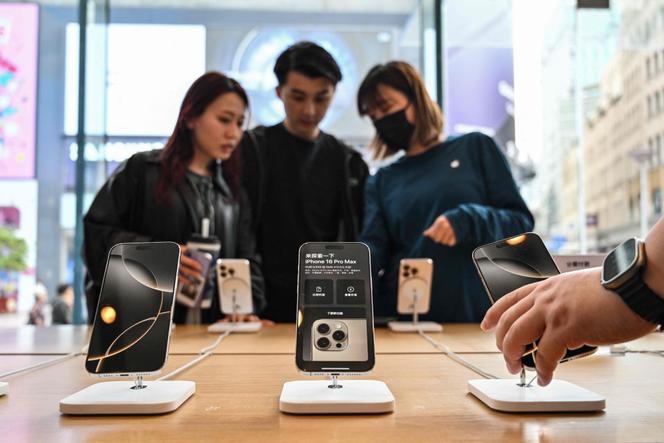


"Designed by Apple in California. Assembled in China": The phrase printed on iPhones encapsulates the economic model that has made Apple prosperous for two decades. The purportedly reciprocal tariffs that Donald Trump wants to impose threaten this model to such an extent that the American president backpedaled on the evening of Friday, April 11.
This relief is crucial: While Apple is indeed the world's largest company by market value, worth $3 trillion, it seems to have fallen behind in the race for artificial intelligence and struggles to release groundbreaking products. In an undeniable sign, investor Warren Buffett (Berkshire Hathaway) sold two-thirds of his stake in the company led by Tim Cook in 2024.
The news of the exemption was quietly released by US Customs and Border Protection, which clarified in a statement that the taxes decided by Trump did not apply to a series of products designated by their tariff codes. Behind these cryptic numbers were Apple's smartphones, Dell's computers, Hewlett-Packard products and numerous chips, which are generally not manufactured in the US.
You have 82.45% of this article left to read. The rest is for subscribers only.
